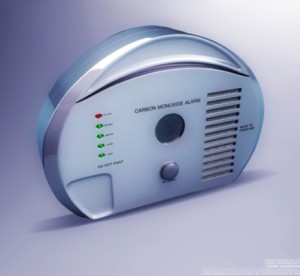If you have combustion appliances, whether it’s a gas furnace, water heater or stove, or a fireplace, your risk of carbon monoxide (CO) poisoning is higher than if you don’t. However, if you follow some simple safety rules, you can cut risk factors way down, ensuring you enjoy the benefits of gas-fueled heating and hot water without risking your health or safety.
What Can Carbon Monoxide Do to You?
According to the federal Consumer Product Safety Commission, more than 200 people every year from accidental carbon monoxide poisoning, though the actual numbers are probably far higher than that. Many thousands fall ill to lesser exposure to CO.
Carbon monoxide poisoning is difficult to diagnose, producing symptoms similar to common wintertime sicknesses, including the common cold and influenza. Massive exposure over the short term can make a person quickly lose consciousness and die, while prolonged exposure to lower amounts can damage the heart, brain and other organs.
How to Avoid CO Poisoning
• Proper installation – A professional certified contractor should install all combustion appliances. It’s vitally important that all specs are followed, and that the chimney, flue and venting system are all installed according to professional standards.
• Annual maintenance – Both the furnace and water heater should be inspected and maintained once a year. Part of this process should include examination of the pipes and chimney that exhaust CO and other combustion gases. If you have a fireplace, you should schedule a chimney sweep inspection and cleaning yearly as well. The technician will look to see if the chimney liner is cracked or mortar has loosened between sections of the liner. When this happens, combustion gases and even flames can get outside the chimney and threaten your home and safety.
• Get working CO detectors – One should be placed on each floor of the home, especially near sleeping areas. Batteries should be checked regularly.
For more help assessing the risks of carbon monoxide poisoning in your Mid-Atlantic home, please contact us at Griffith Energy Services, Inc.
Image Provided by Shutterstock.com




